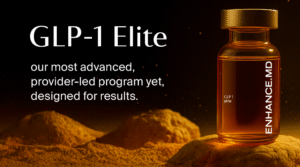Introduction to Zinc and Its Importance
Zinc is an essential mineral that plays a pivotal role in numerous physiological processes within the human body. It is a trace element, meaning that, although required in small amounts, its importance cannot be overstated. Zinc supports various bodily functions, including immune system functionality, synthesis of proteins, and efficient wound healing. The mineral is crucial for the development and activation of immune cells, thereby enhancing the body’s ability to combat infections and diseases.
The significance of zinc extends to its role in protein synthesis, which is vital for muscle growth and repair. This function is particularly crucial for individuals engaged in intense physical activities or those recovering from injuries, as zinc promotes the proper formation and function of proteins. Furthermore, zinc is integral to DNA synthesis, cell division, and the production of hormones, all of which are essential for maintaining homeostasis and overall health.
Zinc also aids in wound healing by supporting the growth of new tissue and reducing inflammation. Its anti-inflammatory properties enhance the healing process, making it indispensable in managing injuries and surgical recovery. Besides these functions, zinc contributes to the maintenance of taste and smell, as it is necessary for the proper functioning of taste buds and olfactory cells.
While zinc can be obtained through a well-balanced diet consisting of foods like meat, shellfish, legumes, seeds, nuts, dairy products, and whole grains, many individuals may still require supplementation to meet their daily needs. This is particularly relevant for individuals with dietary restrictions, older adults, or those with certain medical conditions that affect zinc absorption. Understanding the importance of this trace mineral is crucial for optimizing health, as its deficiency can lead to various health issues.
Boosting Immune Function
Zinc plays a vital role in maintaining and enhancing immune function, which is essential for the body’s ability to ward off infections and diseases. It is a trace element that is critical for the proper development and function of immune cells, including T-lymphocytes and macrophages. These immune cells are crucial for identifying and eliminating pathogens such as bacteria and viruses. Without adequate levels of zinc, the immune system may not respond effectively, leading to increased susceptibility to infections.
Research indicates that zinc deficiency can significantly impair the immune response, resulting in a higher incidence of infections. Supplementing with zinc can help to restore optimal levels, thereby enhancing the immune response. For instance, zinc supplements have been shown to promote the proliferation and activation of T-lymphocytes, which are essential for adaptive immunity. These cells help to provide the body with long-lasting immunity by “remembering” past infections and responding more effectively upon re-exposure.
Moreover, macrophages, which act as the body’s first line of defense, rely on zinc to perform their functions. These cells are responsible for engulfing and digesting pathogens, alongside orchestrating the overall immune response. Adequate zinc levels not only boost the activity of macrophages but also help in modulating inflammation and repairing tissue during and after an infection.
Furthermore, studies suggest that sufficient zinc intake can reduce the duration and severity of infections. Individuals who consume optimal amounts of zinc are less likely to experience prolonged illnesses and often exhibit milder symptoms. This illustrates the significance of zinc supplements in supporting immune function and underscores the importance of maintaining adequate zinc levels for overall health. Proper zinc supplementation can serve as a critical strategy to bolster immune defense mechanisms and promote resilience against infections.
Supporting Wound Healing
Zinc plays a crucial role in the physiological processes involved in wound healing, making it an important mineral for recovery following injury. Its involvement in cell proliferation is fundamental; zinc is necessary for the stimulation of various cellular activities that accelerate the repair process. For instance, it facilitates the production and differentiation of fibroblasts, which are essential cells responsible for collagen formation and tissue repair. The process of collagen synthesis is critical as collagen serves as a primary structural protein in the healing of wounds, providing strength and support to the newly formed tissue.
Additionally, zinc exhibits anti-inflammatory properties that contribute to effective wound healing. By modulating inflammatory responses, zinc helps to minimize excessive inflammation that can delay the healing process. A balanced inflammatory response is essential in allowing the body to progress from the inflammatory phase to the proliferative phase, during which new tissue forms. This anti-inflammatory action is supported by various studies indicating that adequate zinc levels correlate with reduced inflammation, thus promoting timely healing.
Real-world examples highlight the positive effects of zinc supplementation in wound healing scenarios. A study published in the journal “Wound Repair and Regeneration” found that patients receiving zinc supplementation exhibited significantly improved healing rates compared to those who did not receive this mineral. Furthermore, clinical observations have noted that individuals with chronic wounds often have low serum zinc levels; addressing this deficiency through supplementation has been shown to enhance healing outcomes. Such findings underscore the importance of zinc not only for individuals recovering from surgical procedures but also for those with chronic non-healing wounds.
In summary, the role of zinc in wound healing extends beyond mere mineral intake; it is integral to cellular function, collagen synthesis, and the regulation of inflammation, all essential components of effective tissue repair. This highlights the necessity of ensuring adequate zinc levels in individuals undergoing healing processes.
Promoting Healthy Skin
Zinc is an essential mineral that plays a vital role in maintaining skin health. It contributes to the structural integrity of the skin by supporting collagen synthesis, which is crucial for skin elasticity and resilience. Inadequate levels of zinc can result in skin disorders, highlighting the mineral’s importance in dermatological care.
One of the most notable benefits of zinc supplements is their efficacy in combating acne. Zinc possesses anti-inflammatory properties that help reduce the size and redness of acne lesions, making it a valuable option for those struggling with this common skin condition. The mineral also assists in regulating oil production, which can prevent excessive sebum from clogging pores. Moreover, zinc’s role in immune function helps to protect the skin against bacteria and other pathogens that can exacerbate acne.
In addition to acne management, zinc supplements have shown promise in treating a variety of other skin conditions, including eczema and psoriasis. Research indicates that zinc helps modulate immune responses and may reduce the severity of flare-ups associated with these conditions. Its antioxidant properties help to neutralize harmful free radicals that can cause skin damage and inflammation, promoting a healthier skin barrier.
While supplementation offers significant benefits, topical zinc applications also have their advantages. Products containing zinc oxide are widely used in sunscreens and ointments, providing effective protection against sunburn and other forms of skin irritation. Thus, individuals may experience favorable outcomes by incorporating both oral zinc supplements and topical treatments into their skincare routines, catering to different aspects of skin health.
By ensuring adequate zinc intake—whether through diet, supplements, or topical applications—individuals can promote healthier skin, address existing skin issues, and potentially improve overall dermatological health.
Enhancing Mental Clarity and Mood
Zinc is an essential trace mineral that plays a crucial role in various physiological processes, including those related to cognitive function and mental health. Numerous studies have indicated a significant relationship between zinc levels and brain activities, such as memory, attention, and overall mood stability. Empirical evidence suggests that adequate zinc intake may positively influence cognitive performance, enhancing memory retention and attention span, particularly in populations that are at risk of deficiency, such as the elderly or individuals with certain dietary restrictions.
Research has shown that zinc deficiency is correlated with cognitive impairments, highlighting its neurological importance. For instance, a study found that supplementing zinc in deficient individuals led to improvements in working memory and cognitive processing speed. Furthermore, zinc is known to modulate neurotransmitter function and prevent oxidative stress in the brain, both of which are vital for maintaining mental clarity. Its ability to influence neurogenesis—the process of generating new neurons—may further support cognitive health.
In addition to enhancing cognitive function, zinc supplements may offer benefits for mental health. Low levels of zinc have been associated with conditions such as anxiety and depression. Epidemiological studies indicate that individuals suffering from these disorders tend to have reduced plasma zinc concentrations. Thus, supplementing with zinc may help alleviate symptoms of anxiety and depression by restoring optimal zinc levels, contributing to mood stability. While more extensive clinical trials are necessary to establish definitive conclusions, the evidence suggests that zinc could play a supportive role in mental health interventions.
In conclusion, the role of zinc in enhancing mental clarity and supporting mental health is increasingly recognized. Ensuring adequate zinc intake, either through diet or supplementation, may provide significant benefits for cognitive performance and emotional well-being.
Regulating Hormonal Balance
Zinc is a vital trace mineral that plays a significant role in maintaining hormonal balance within the body. One of its most notable effects is on testosterone levels, which are crucial for various physiological functions. Research has shown that zinc deficiency can lead to reduced testosterone production, particularly in men. Supplementing with zinc not only aids in restoring optimal testosterone levels but also helps enhance overall reproductive health.
In addition to its effects on testosterone, zinc also influences insulin regulation, which is essential for metabolic health. Insulin is the hormone responsible for managing blood sugar levels and maintaining energy balance. Studies indicate that adequate zinc levels can improve insulin sensitivity, thereby contributing to better glucose metabolism. This interaction is particularly relevant for individuals at risk of metabolic disorders, such as type 2 diabetes.
Furthermore, zinc’s impact on hormonal balance extends to both genders. In women, zinc is critical for reproductive functions, supporting ovulation and menstrual regulation. A balanced zinc level may help alleviate premenstrual syndrome (PMS) and enhance fertility. This essential mineral may also play a role in hormone replacement therapy, improving outcomes for women undergoing such treatments.
Several studies have documented the positive effects of zinc supplementation on hormonal functions. For instance, a controlled trial published in a reputable journal reported that men who supplemented with zinc experienced noticeable increases in testosterone as well as improvements in reproductive health markers. Likewise, research exploring the connection between zinc levels and insulin metabolism has highlighted the importance of this mineral in preventing metabolic dysfunction.
In summary, by ensuring adequate zinc intake through supplementation, individuals can potentially improve their hormonal balance, benefiting both reproductive and metabolic health.
Supporting Digestive Health
Zinc plays a crucial role in maintaining healthy gut function and supports various digestive processes. As an essential trace mineral, zinc is involved in numerous enzymatic reactions that facilitate digestion and nutrient absorption. Enzymes that require zinc are vital for breaking down macronutrients such as proteins, carbohydrates, and fats, thereby ensuring that the body efficiently extracts and utilizes the energy and nutrients from food.
Moreover, zinc contributes to regulating gut permeability, which is the ability of the intestinal lining to allow certain substances to pass while keeping harmful toxins and pathogens out. An optimal level of zinc aids in the maintenance of the intestinal barrier, thus preventing conditions such as leaky gut syndrome, which can lead to gastrointestinal discomfort and inflammation. This protective role underscores the importance of adequate zinc intake for preserving overall gut health.
The benefits of zinc supplementation become particularly apparent in individuals suffering from digestive disorders. For instance, research indicates that zinc may alleviate symptoms associated with diarrhea, gastritis, and inflammatory bowel disease (IBD). By supporting the repair and regeneration of intestinal cells, zinc can help mitigate inflammation and promote healing in the digestive tract. Additionally, improved gut health can enhance the absorption of critical vitamins and minerals, reinforcing the importance of zinc in the digestive process.
In conclusion, ensuring sufficient zinc levels through diet or supplementation is imperative for optimal digestive health. With its role in enzymatic processes and gut permeability regulation, zinc proves to be a vital component in maintaining efficient digestion and overall well-being. Thus, understanding and recognizing the importance of zinc can lead to better dietary choices and improved gut health outcomes.
Potential Role in Disease Prevention
Zinc, an essential trace mineral, plays a critical role in numerous aspects of human health, particularly in disease prevention. One of its significant properties is its function as an antioxidant, which helps protect cells from oxidative stress caused by free radicals. Oxidative stress is increasingly recognized as a contributing factor in the development of chronic conditions. By mitigating this stress, zinc may help lower the risk of diseases such as diabetes, heart disease, and other age-related ailments.
Research indicates that adequate zinc levels can enhance the body’s immune response and reduce inflammation, both of which are crucial in preventing chronic diseases. For instance, a study published in the “American Journal of Clinical Nutrition” highlighted that zinc supplementation could improve insulin sensitivity, thereby lowering the risk of type 2 diabetes. Additionally, individuals with diabetes often exhibit low levels of zinc, suggesting that supplementation may be particularly beneficial for those managing this condition.
The relationship between zinc and cardiovascular health is also notable. Evidence suggests that zinc’s antioxidant properties may assist in reducing the risk of heart disease by protecting endothelial function and maintaining healthy blood pressure levels. Furthermore, a review in the “Journal of Lipid Research” discussed how adequate zinc levels can help manage cholesterol levels, further contributing to cardiovascular health.
Moreover, zinc’s implications extend into age-related health concerns. As individuals age, lower zinc levels have been associated with various degenerative diseases. A study published in “Nutrients” emphasized the importance of maintaining adequate zinc intake to support cognitive function and reduce the risk of neurodegenerative diseases. While more research is warranted, these findings collectively suggest that zinc supplementation could play a pivotal role in mitigating the risk of various chronic health issues through its diverse mechanisms of action.
Conclusion and Recommendations
In summary, zinc supplements offer various health benefits that are pivotal for maintaining overall well-being. They contribute to immune function, promote wound healing, support metabolic processes, and enhance cognitive health. As revealed throughout this article, adequate zinc intake is essential for both physical and mental health, highlighting the nutrient’s role in maintaining various bodily functions.
For optimal benefits, adult men should aim for a daily zinc intake of 11 mg, while adult women should target 8 mg, according to dietary guidelines. It is worth noting that these values may vary based on individual health conditions, age, and lifestyle factors. While dietary sources such as lean meats, shellfish, legumes, nuts, and seeds can provide sufficient zinc, supplements may be necessary for those unable to meet their needs through diet alone.
However, potential risks associated with excessive zinc intake should not be underestimated. Over-supplementation can lead to adverse effects, such as nausea, vomiting, and interference with the absorption of other essential minerals, notably copper. Therefore, it is crucial to adhere to the recommended daily allowances and avoid exceeding them.
Individuals considering zinc supplementation should first consult a healthcare provider to discuss their specific needs and any pre-existing health conditions. A thorough assessment can provide personalized recommendations on whether supplements are appropriate, the form of zinc to utilize, and how to integrate it safely into their health regimen. Overall, while zinc supplements can offer significant benefits, cautious and informed use is essential for maximizing their effectiveness and minimizing potential risks.







